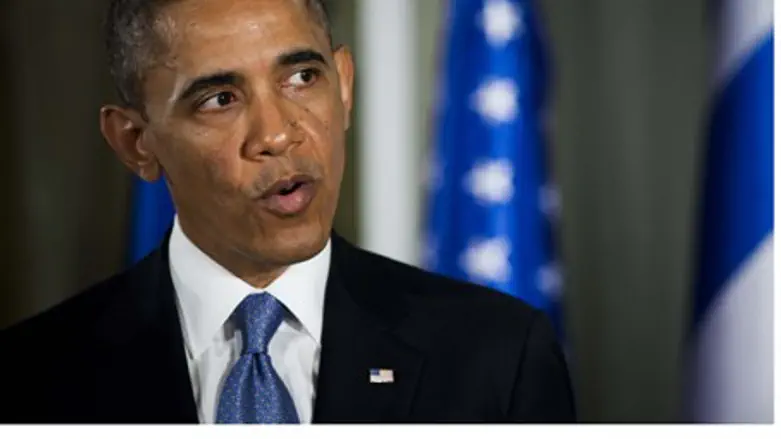
United States President Barack Obama on Monday slammed Republican senators who penned a letter attempting to warn Iran that any pending nuclear agreement will face their scrutiny.
"I think it's somewhat ironic to see some members for Congress wanting to make common cause with the hard-liners in Iran. It's an unusual coalition," Obama said Monday, according to CNN.
"I think what we're going to focus on right now is actually seeing whether we're going to get a deal or not. Once we do, if we do, we'll be able to make the case to the American people, and I'm confident we'll be able to implement it," he added.
The letter, written by freshman Senator Tom Cotton and signed by the Senate's entire Republican leadership as well as potential 2016 presidential contenders Marco Rubio, Ted Cruz and Rand Paul, warns Iran’s leaders that any nuclear deal they sign with Obama will not be valid after he leaves office in 2016.
It comes amid disagreements between Obama and some Congress members over the talks with Iran. Senators have called for tougher sanctions on Iran, which Obama has threatened to veto so long as talks are ongoing.
Last week, senators began promoting legislation that would require a congressional review of any deal the Obama administration and other western powers strike with Iran on its nuclear program. Obama has threatened to veto that as well.
Iran’s Foreign Minister, Mohammad Javad Zarif, slammed the Republican letter on Monday, saying it “has no legal value and is indeed just a propaganda ploy”.
"What’s more, while the negotiations have not yet borne fruit and there no agreement yet, pressure groups in the U.S. are so worried that they are using extraordinary measures to prove that they, just like [Israeli Prime Minister Binyamin] Netanyahu oppose any kind of agreement," he added, according to a statement quoted by CNN.
White House press secretary Josh Earnest, meanwhile, called the letter a "continuation of a partisan strategy to undermine the President's ability to conduct foreign policy."
"To essentially throw sand in the gears here is not helpful, and is not, frankly, the role our founding fathers envisioned for Congress to play when it comes to our foreign policy," he said.
